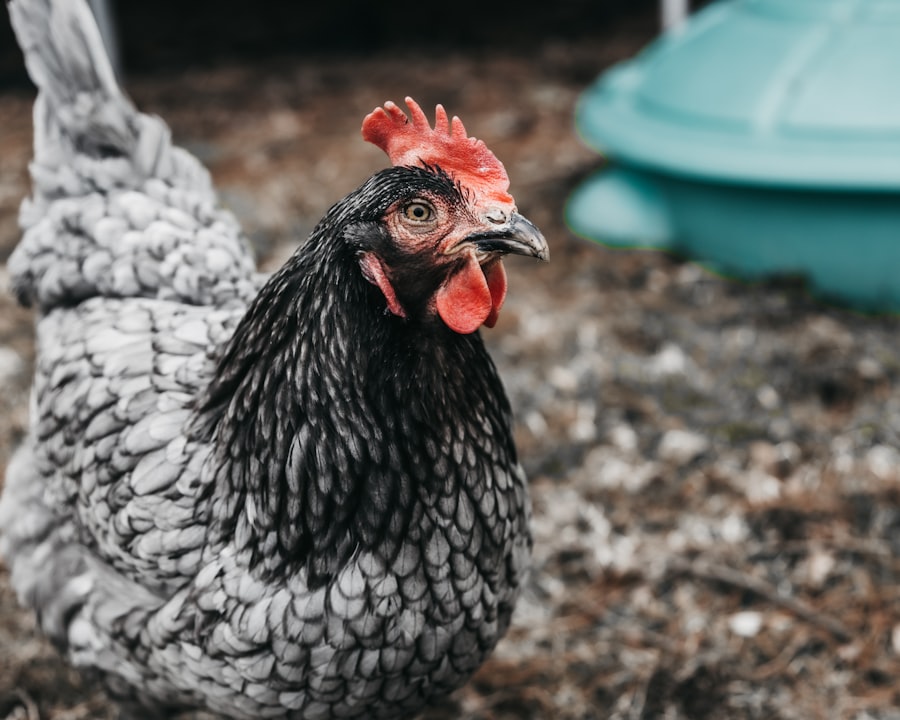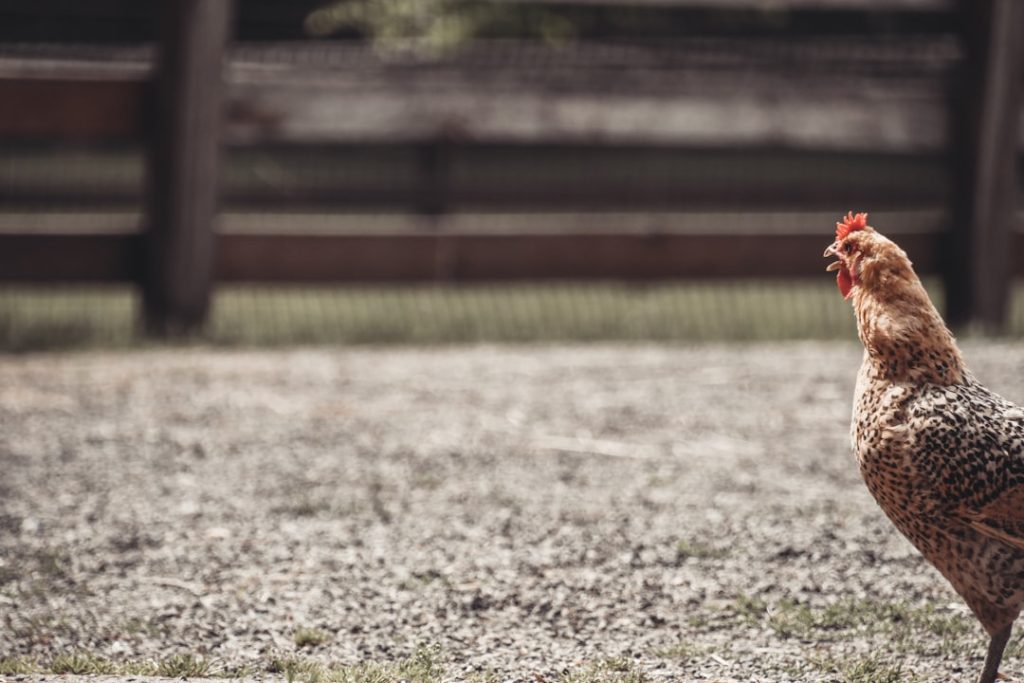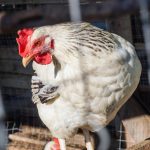Weasels are small, carnivorous mammals characterized by slender bodies and swift movements. These skilled hunters can squeeze into tight spaces, posing a threat to chicken coops and small livestock. Primarily nocturnal, weasels are most active at night.
Their agility and climbing abilities enable easy access to enclosures. As opportunistic predators, weasels take advantage of any hunting opportunity. They possess a keen sense of smell and excellent hearing, aiding in prey location.
Weasels are known to kill more prey than they can immediately consume, storing excess for later. This behavior can result in significant losses for chicken owners, as multiple birds may be killed in one night. Their intelligence and adaptability make weasels challenging to deter once they’ve targeted an area.
It’s important to note that weasels are not malicious, but rather acting on natural hunting and survival instincts. Understanding weasel behavior is crucial for developing effective protection strategies for chickens and small livestock. This knowledge allows owners to implement proactive measures to safeguard their flocks from these predators.
Table of Contents
Key Takeaways
- Weasels are small, agile predators known for their ability to squeeze through small openings and prey on chickens and other small animals.
- Securing the chicken coop with strong, tightly sealed materials and adding locks to doors and windows can help prevent weasel attacks.
- Predator-proof fencing with small mesh size and buried underground can effectively keep weasels out of the chicken coop area.
- Motion-activated lights and sounds can startle and deter weasels from approaching the chicken coop, providing an added layer of protection.
- Livestock guardian animals such as dogs or geese can help protect the chicken coop by deterring weasels and other predators.
- Removing attractants such as food scraps and hiding spots around the chicken coop can help reduce the likelihood of weasel visits.
- Seeking professional help from wildlife experts or pest control services can provide additional guidance and support in managing weasel behavior around the chicken coop.
Securing the Chicken Coop
Inspecting the Coop’s Structure
This includes checking for gaps in the walls, floors, and roof, as weasels are capable of squeezing through very small openings. It is also important to ensure that all doors and windows are securely closed and latched at night, as weasels are most active during this time.
Reinforcing the Coop
Additionally, reinforcing the coop with sturdy materials such as hardware cloth can help prevent weasels from gaining access to the chickens. Another important aspect of securing the chicken coop is to eliminate any potential hiding spots for weasels.
Maintaining a Weasel-Free Zone
This includes removing brush, tall grass, and debris from around the coop, as these can provide cover for weasels as they approach the enclosure. Keeping the area around the coop clean and well-maintained can help deter weasels from targeting your flock. It is also important to regularly inspect the coop for signs of weasel activity, such as droppings or tracks, as this can indicate that the predators are attempting to gain access to the chickens. By securing the chicken coop and eliminating potential hiding spots, chicken owners can significantly reduce the risk of weasel attacks on their flock.
Using Predator-Proof Fencing

Predator-proof fencing is an effective way to protect your chickens from weasel attacks. This type of fencing is designed to keep out small predators such as weasels, while still allowing chickens to roam freely within a designated area. Predator-proof fencing typically consists of sturdy materials such as hardware cloth or welded wire, with small openings that weasels cannot squeeze through.
It is important to bury the bottom of the fence several inches into the ground to prevent weasels from digging underneath it. Additionally, adding an outward-facing overhang at the top of the fence can further deter weasels from climbing over it. When installing predator-proof fencing, it is important to ensure that there are no gaps or weak points that weasels could exploit.
Regular inspections of the fence should be conducted to check for any signs of damage or wear, and repairs should be made promptly to maintain its effectiveness. It is also important to consider the height of the fence, as weasels are skilled climbers and jumpers. A fence that is at least 3 feet high with an overhang can help prevent weasels from gaining access to the chickens.
By using predator-proof fencing, chicken owners can create a secure area for their flock to roam while minimizing the risk of weasel attacks.
Implementing Motion-Activated Lights and Sounds
Motion-activated lights and sounds can be an effective deterrent against weasels and other predators. Weasels are typically nocturnal animals, so installing lights that turn on when motion is detected can startle them and discourage them from approaching the chicken coop. Additionally, adding sound devices that emit loud noises when motion is detected can further deter weasels from targeting the chickens.
These devices can be set to activate automatically at night when weasels are most active, providing an extra layer of protection for the flock. When implementing motion-activated lights and sounds, it is important to strategically place them around the chicken coop to maximize their effectiveness. This may include positioning them at potential entry points or areas where weasels are likely to approach.
It is also important to regularly check and maintain these devices to ensure they are functioning properly. By using motion-activated lights and sounds, chicken owners can create a hostile environment for weasels, making it less likely for them to target the flock.
Using Livestock Guardian Animals
Livestock guardian animals such as dogs or llamas can be valuable allies in protecting chickens from weasel attacks. These animals are naturally protective of their territory and can help deter predators from approaching the coop. Dogs, in particular, have a strong sense of smell and hearing, making them effective at detecting and deterring weasels.
Llamas are also known for their alertness and territorial behavior, which can make them effective guardians for chickens and other small livestock. When using livestock guardian animals, it is important to select breeds that are well-suited for the task and have been properly trained to coexist with chickens. Introducing guardian animals to the flock at a young age can help them develop a protective bond with the chickens and become accustomed to their presence.
It is also important to provide proper care and training for these animals to ensure they are healthy and capable of fulfilling their role as protectors. By using livestock guardian animals, chicken owners can add an extra layer of defense against weasel attacks and provide peace of mind for their flock’s safety.
Removing Attractants

Secure Food Sources
Securing garbage cans, compost piles, and pet food storage areas is vital in preventing weasels from scavenging for food near the coop. By doing so, you can reduce the likelihood of weasels being drawn to the area.
Maintain a Clean Environment
Keeping the area around the coop clean and free of debris is crucial in preventing weasels from finding cover as they approach. Regularly removing any fallen fruit or vegetables from trees or gardens near the coop can also help prevent rodents from being attracted to the area, which in turn can attract weasels.
Create a Less Appealing Environment
By removing attractants from around the chicken coop, chicken owners can minimize the likelihood of weasels targeting their flock and create a less appealing environment for these predators. This proactive approach can help ensure the safety and well-being of your chickens.
Seeking Professional Help
In some cases, seeking professional help may be necessary to effectively protect chickens from weasel attacks. Pest control experts or wildlife specialists can provide valuable insight and assistance in developing strategies to deter weasels from targeting the flock. These professionals may be able to conduct a thorough assessment of the property and recommend specific measures to minimize the risk of weasel attacks.
Professional help may also be necessary if weasel activity poses a significant threat to the safety of the chickens or if previous efforts to deter them have been unsuccessful. Wildlife specialists may have access to specialized tools or techniques that can effectively deter weasels from approaching the coop. By seeking professional help, chicken owners can gain access to expert knowledge and resources that can help protect their flock from weasel attacks.
In conclusion, understanding the behavior of weasels is crucial in developing effective strategies to protect chickens from these predators. Securing the chicken coop with predator-proof fencing, implementing motion-activated lights and sounds, using livestock guardian animals, removing attractants, and seeking professional help are all important measures that can help minimize the risk of weasel attacks on your flock. By taking proactive steps to deter weasels and protect your chickens, you can create a safe and secure environment for your livestock.
If you’re looking for ways to protect your chickens from weasels, you may also be interested in learning about the incubation period for goose eggs. Check out this article to gain insight into the process of hatching and raising geese.
FAQs
What are some effective methods for keeping weasels from killing chickens?
Some effective methods for keeping weasels from killing chickens include securing the chicken coop with sturdy wire mesh, burying the wire mesh at least 12 inches deep to prevent digging, and using motion-activated lights or sound devices to deter weasels.
What are some natural deterrents for weasels?
Some natural deterrents for weasels include planting strong-smelling herbs such as mint, lavender, or rosemary around the chicken coop, as weasels are known to dislike strong scents. Additionally, keeping a guard animal such as a dog or a cat can help deter weasels from approaching the chicken coop.
Are there any commercial products available to keep weasels away from chickens?
Yes, there are commercial products available such as predator-proof chicken coops, electronic deterrent devices, and predator urine sprays that can help keep weasels away from chickens. It’s important to carefully follow the instructions for these products to ensure their effectiveness.
What should I do if I suspect weasels are targeting my chickens?
If you suspect weasels are targeting your chickens, it’s important to take immediate action to protect your flock. Secure the chicken coop with sturdy wire mesh, reinforce any potential entry points, and consider using natural or commercial deterrents to keep weasels away. It’s also a good idea to monitor the area for any signs of weasel activity and take appropriate measures to protect your chickens.
Meet Walter, the feathered-friend fanatic of Florida! Nestled in the sunshine state, Walter struts through life with his feathered companions, clucking his way to happiness. With a coop that’s fancier than a five-star hotel, he’s the Don Juan of the chicken world. When he’s not teaching his hens to do the cha-cha, you’ll find him in a heated debate with his prized rooster, Sir Clucks-a-Lot. Walter’s poultry passion is no yolk; he’s the sunny-side-up guy you never knew you needed in your flock of friends!







